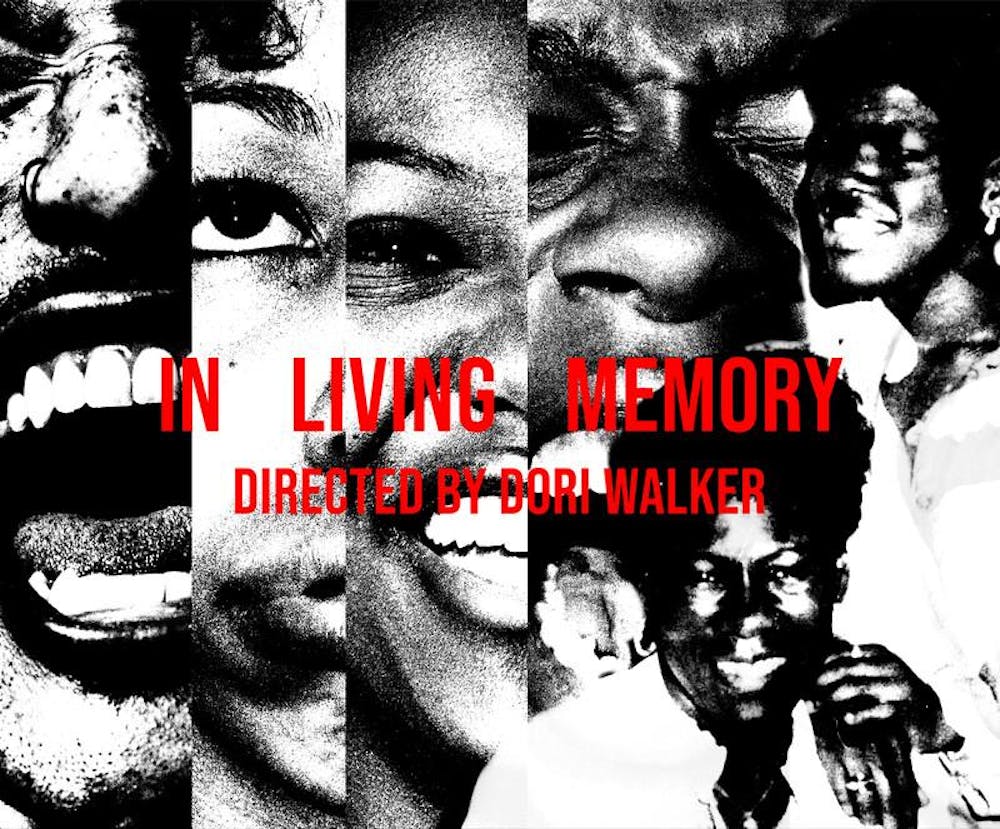At Brown, undergraduate theses go through many eyes — thesis advisors, professors, mentors and peers all get a chance to explore projects made by passionate students. But Dori Walker’s ’24 thesis in Modern Culture and Media reached far beyond campus, impressing even the Academy of Motion Picture Arts and Sciences.
Recently, Walker's short film “In Living Memory,” which explores archives, memory and history, was awarded a Student Academy Award in the Alternative/Experimental category.
The Herald sat down with Walker to discuss her artistic process and the undergraduate journey that led to such a project.
“In Living Memory” weaves together archival interview footage, interviews of Walker’s friends and family and clips of her neighborhood and life. "It's a film about feelings and the process of those feelings and sitting with them and being with them," Walker explained.
Throughout the film, neon green captions bring the audience’s attention to Walker’s voice, as well as those of the people around her. Here, as in other moments in the film, Walker’s unique artistic style is used to turn memories into something tangible.
Walker shared that the movie’s attention to memory and recollection was inspired by the Department of Modern Culture and Media’s focus on archival practices.
"I remember I took this class with Professor (Tina Marie) Campt and I feel like it completely flipped my world upside down," she said. “I had never received such a breadth of that kind of literature around topics of Blackness, memory, emotional labor, effective labor — which all kind of feed back into memory.”
A reverence for memory is clear in Walker’s film, which creates, preserves, juxtaposes and combines memories through new and old footage.
“Memory was huge on my mind (as well as) this idea that Black histories and Black stories are so frequently not archived, misarchived (or) kind of co-opted when it comes to how they're remembered,” she said. “Sometimes they just don’t exist at all because we haven't had the luxury of that kind of care being extended to our stories.”
Beyond such theoretical questions, Walker said her film was also rooted in her personal experiences of grief during college.
“I realized that these people who have been significant to me are all passing, and there are so many things I wish I had asked them. I'm never going to know the answers to these things (because) their memories died with them,” Walker said.
Walker’s film is broken into six vignettes, which she approached as individual projects before assembling them together. Walker shot the footage for the film in about seven days, playing with the camera around her neighborhood, her grandmother and at dinner with her family.
The experiential nature of “In Living Memory” is distinctive. Walker plays with words, music and footage to elicit emotional reactions. In her thesis proposal Walker wrote, “sometimes it may read as a documentary and other times, it is more like a visual memoir. I'm sure it will be an ode to my loved ones. And I hope it is a beautiful mess.”
Apart from the real-life footage, Walker drew inspiration from and featured archival pieces from Black women spanning across history. For her own interviews with friends and family, Walker was “compelled by the reverence that people have when they're sat down for an interview.”
“I think that (interviewing is) different from acting, and it’s different from following someone around. You watch people adjust themselves and kind of edit themselves. And you also watch people be very strong about their convictions,” Walker explained.
Walker continues to be in disbelief after winning a Student Academy Award. “To be recognized by the Academy is extremely surreal to me. I’m just grateful to everybody that was involved,” she said.
“When I won, I realized that there are so many people behind this film that don't even know that they’re behind this film, or wouldn’t necessarily see their participation in my life as having to do with this film,” Walker added. “I feel like this win is emblematic of those relationships.”
“In Living Memory” is being screened in festivals across the country to new audiences. To those still to experience Walker’s film, she stressed “that film at its core is a Black film, and it's ruled by love.”





